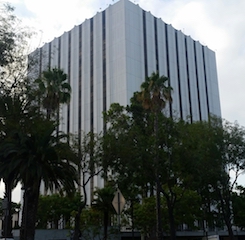So your attorney asked you about prior instances where the police came to your house in response to a report of domestic violence? Why is this relevant if the police never arrested you?
Your instincts are correct in that there is certainly are issues of relevance, wasting time and unfair prejudice in letting a jury know about conduct that was not even a violation of the law.
The Reader’s Digest Version: Evidence Code § 1109 permits admissible of evidence of prior uncharged acts of domestic violence to show propensity to act in a certain way as long as the prosecutor gives proper advance notice of this and defendant does not object.
Indeed, the rule excluding the use of prior misconduct to show a defendant’s propensity to commit the currently charged offense serves at least three key purposes. First, it relieves the defendant of the often unfair burden of defending against both the charged offense and the other uncharged offenses. Second, it promotes judicial efficiency by avoiding protracted mini-trials to determine the truth or falsity of the prior charge. Third, it guards against undue prejudice arising from the admission of the defendant’s other offenses.
People v. Falsetta (1999) 21 Cal.4th 903, 915-916.
 Compton Courthouse
Compton CourthouseTherefore, the California Supreme Court has repeatedly warned that the admissibility of this type of evidence must be scrutinized with great care. People v. Thompson, supra, 27 Cal.3d at p. 314 [citations omitted]. Despite this admonition, in adopting Evidence Code sections 1108 and 1109, the Legislature enacted statutes that permit the introduction of evidence of prior acts to show propensity where defendants are charged with sexual offenses, domestic violence, adult or dependent abuse, and child abuse.
The California Supreme Court has upheld the constitutionality of Evidence Code section 1108, which deals with the introduction of prior sex offenses to show propensity (People v. Falsetta, supra, 21 Cal.4th 903), and a number of appellate courts have affirmed the constitutionality of Evidence Code section 1109, which deals with the introduction of prior acts of domestic violence, adult or dependent abuse, and child abuse to show propensity. People v. Cabrera (2007) 152 Cal.App.4th 695; People v. Williams (2008) 159 Cal.App.4th 141).
Propensity means the likelihood or capacity of a person to commit certain offenses. In People v. Quintanilla (2005) 132 Cal.App.4th 572, Division Three of the First District Court of Appeal held that Evidence Code § 1109 is limited to evidence of uncharged instances of domestic violence to prove the defendant’s propensity to commit such offenses. The appellate court concluded that because evidence of charged offenses is not subject to exclusion based on Evidence Code section 352 based on relevance, those offenses can never be used as propensity evidence pursuant to Evidence Code section 1108 or section 1109. As the Court of Appeal noted, defendants cannot object to the admissibility of the evidence of the other charged offenses on Evidence Code section 352 grounds.
This naturally drives most defense attorneys crazy because it allows prosecutors to suggest that “Defendant got away with this before; Don’t let him get away with it again!” However, the reality may be that the prior instance of alleged domestic violence was truly insignificant and if Defendant is forced to educate the jury on this, the jury will remain skeptical no matter how strong the evidence is that the prior instance of alleged domestic violence really was nothing. The old rhetorical question of “were you lying then or are you lying now?” seems to fit the jurors’ likely approach to this.
 Compton Courthouse
Compton Courthouse